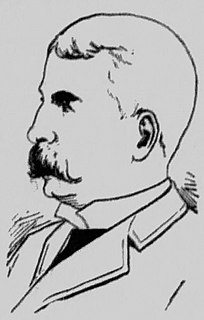A Quote by Tacitus
Cassius and Brutus were the more distinguished for that very circumstance that their portraits were absent.
[Lat., Praefulgebant Cassius atque Brutus eo ipso, quod effigies eorum non videbantur.]
Quote Topics
Related Quotes
Lucius Cassius ille quem populus Romanus verissimum et sapientissimum iudicem putabat identidem in causis quaerere solebat 'cui bono' fuisset. The famous Lucius Cassius, whom the Roman people used to regard as a very honest and wise judge, was in the habit of asking, time and again, 'To whose benefit?
Like every man who appears at an epoch which is historical and rendered famous by his works, Jesus Christ has a history, a history which the church and the world possess, and which, surrounded by countless memorials, has at least the same authenticity as any other history formed in the same countries, amidst the same peoples and in the same times. As, then, if I would study the lives of Brutus and Cassius, I should calmly open Plutarch, I open the Gospel to study Jesus Christ, and I do so with the same composure.





































